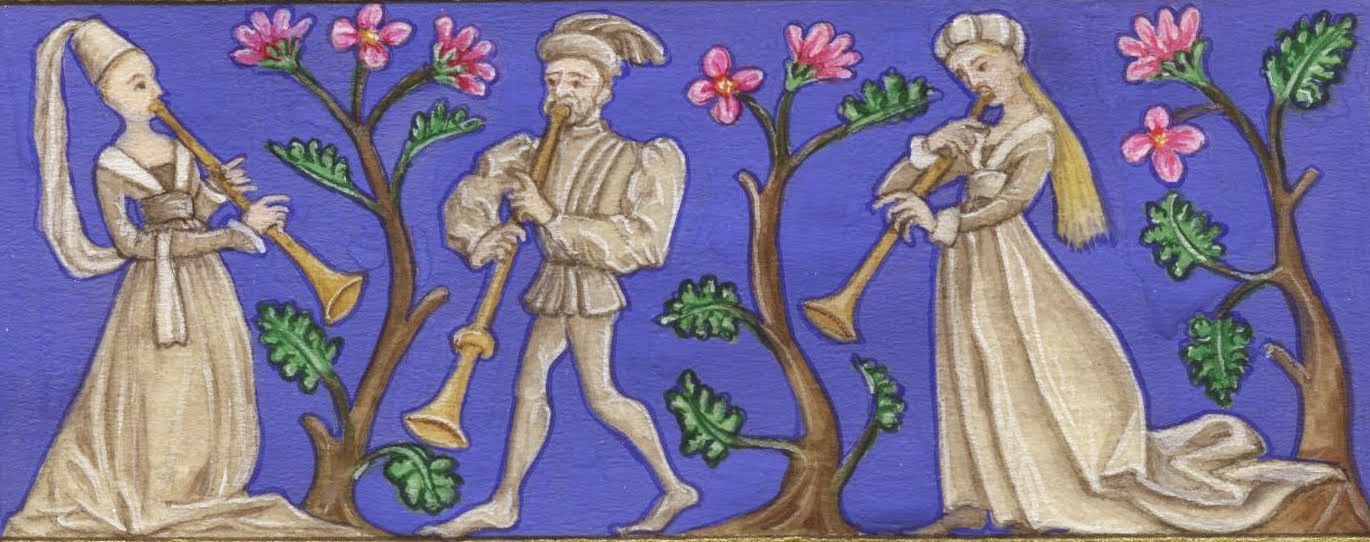[the court ladies, the queen and some knights are in a loggia by the riverbank] "In their company was a harpist who was harping for them a song that had just been composed by a knight from north Wales. The girl who was called Orgayne sang the song while the man harped."This seems very clear, and Page himself comments that it shows "the important place of women in performing the songs of the trouveres" (i.e., he accepts that 'just composed by a knight' is intended to indicate a 'high poetic' style song). Perhaps one could quibble over 'troubadour' vs. 'trouvere', but surely it also shows the importance of instrumentalists in both accompanying and passing on these songs to new audiences?
Thursday 29 January 2015
Instruments and troubadour song
Along with arguing against instruments in polyphonic motets, Chris Page is known for arguing that the 'high poetic' style of troubadour song was also unaccompanied. Joel Cohen discusses some counter evidence in this essay, but I was also interested to find this passage in Page's 'The Owl and the Nightingale' from the 1235 poem Guiron le courtois:
Subscribe to:
Post Comments (Atom)

Wasn't there also something in his book about his argument only being valid for Troubadour songs, being, sung in Occitan, and in the period in which they were composed?
ReplyDeleteI seem to remember he had various exceptions. As for when Troubadour (as opposed to Trouvere) was being sung in the north of France - where it was possible that the instrument 'supported' the piece when in an unfamiliar language.
And when performed in the later period (end of the 13th C when they pieces were written down?). I can't remember his reason for this being an 'exception'.
I will have to read the book again. I've read it twice and remember both times coming to exactly the opposite conclusion from the same evidence.
I agree that re-reading the book (Chris Page's "Voices and Instruments", to be clear) is a good idea. But if he indeed says that (historically) instruments were used when the language was unfamiliar to the audience, that seems an even better argument for using them in modern performances (unless in the rare situation of playing to an completely Occitan audience).
ReplyDeleterather Yes, a point conveniently overlooked by the 'A Cappella Orthodoxy'...
ReplyDelete